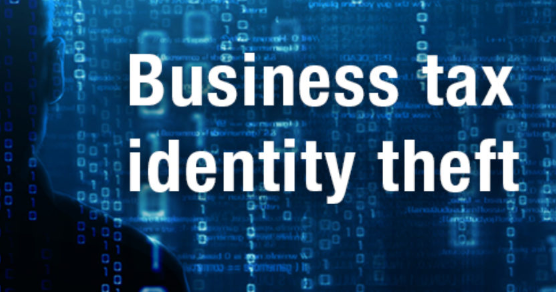Avoiding Business Tax-Related Identity Theft

By Debbie Gregory.
Identity thieves are constantly looking for and creating new scams to utilize other people’s information to their financial advantage. Tax-related identity theft broadens the criminal’s choices for fraud. Utilizing a business’s tax identification number instead of an individual’s social security number allows the criminal to file fraudulent business taxes, claim fraudulent tax credits, or obtain any number of business-related tax benefits.
How can you tell if your business is being used in a fraudulent way?
It is essential to understand that just like personal identity theft, when anyone’s identity can be stolen at almost any time, a business is just as vulnerable. Here are a few ways to tell if your business’s identity has been stolen:
- You try to file your business taxes and they are rejected by the IRS for “duplicate filings” yet you had not previously filed
- Your extension request has been rejected for a similar reason
- You receive an unexpected tax document with incorrect information
How can you safeguard your information?
There are many ways you can safeguard your information including these tips:
- Always use reputable tax professionals if you hire someone to do your taxes for you. Make sure that your professional is also diligently keeping your information safe.
- Look for a CPA who has training or certification in cyber security.
- Never share your passwords, security number, credit card numbers, or any other sensitive information with anyone that does not absolutely need to have this information.
- Be very wary of any email asking you for personal information.
- Never click on a link in an email that seems even slightly suspicious. Remember that the IRS is not going to email you that they will conduct an audit or something of that nature.
- Keep a close eye on your credit score.
- Never write your entire account number when paying for something with a check.
- Always shred documents that you do not need, don’t just toss them out. Criminals routinely go through trash bins looking for sensitive documents.
A Huge Red Flag:
Most emails sent by scammers contain quite a lot of misspelled words and terrible English grammar. A professional company or government agency is much more careful when communicating with their clients.
Worried something is amiss?
Immediately file a fraud alert on yours or your business’s credit report by calling Equifax (888-766-0008), TransUnion (800-680-7289) or Experian (888-397-3742). After you have filed your reports, make sure that you directly call the issuers of any credit cards that you feel may have been impacted.










